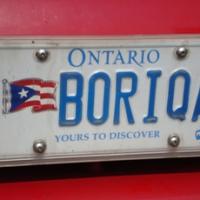Поруке: 9
Језик: English
juman (Погледати профил) 20. септембар 2014. 09.38.30
And a related question but where can you find esperanto dictionaries?
BoriQa (Погледати профил) 20. септембар 2014. 11.10.47
Yakin (Погледати профил) 20. септембар 2014. 11.32.47

juman (Погледати профил) 20. септембар 2014. 16.35.12

robbkvasnak (Погледати профил) 20. септембар 2014. 16.47.27
noelekim (Погледати профил) 20. септембар 2014. 23.06.30
juman:www.esperanto.se/resurser
And a related question but where can you find esperanto dictionaries?
Alkanadi (Погледати профил) 22. септембар 2014. 06.05.06
paŝi = Step
trapaŝi = Step through
kaŝperanto (Погледати профил) 22. септембар 2014. 15.35.30
On a related note, I highly recommend focusing your efforts on learning most of the other prepositions. They sometimes show up in word formations and if you don't know them you can end up in this predicament again. They also give you a lot of payoff for your efforts compared to "normal" words, since they are quite common. I found it greatly aided my learning of Esperanto when I learned the prepositions and most of the "-aux" nonspecific-ending words (many of which are preposiitons).
robbkvasnak (Погледати профил) 22. септембар 2014. 15.49.19
Content words are nouns, most verbs (exception: esti), adjectives (and hence many adverbs). Content words are less stable in a language - think: typewriter, top hat, Walkman, groovy... Content words signify obejcts (and abstractions), how they act, and their descriptions.
Many times function words are used as content words but their main function remains as a "guide" for constructing the meaning of an utterance.
Knowing the function words of a language (and their use or uses) is fundamental. Content words are also important but they are less stable not only in existence but also in meaning (for example the word "thong" which used to signify a type of beach sandal and today is a type of underwear).




